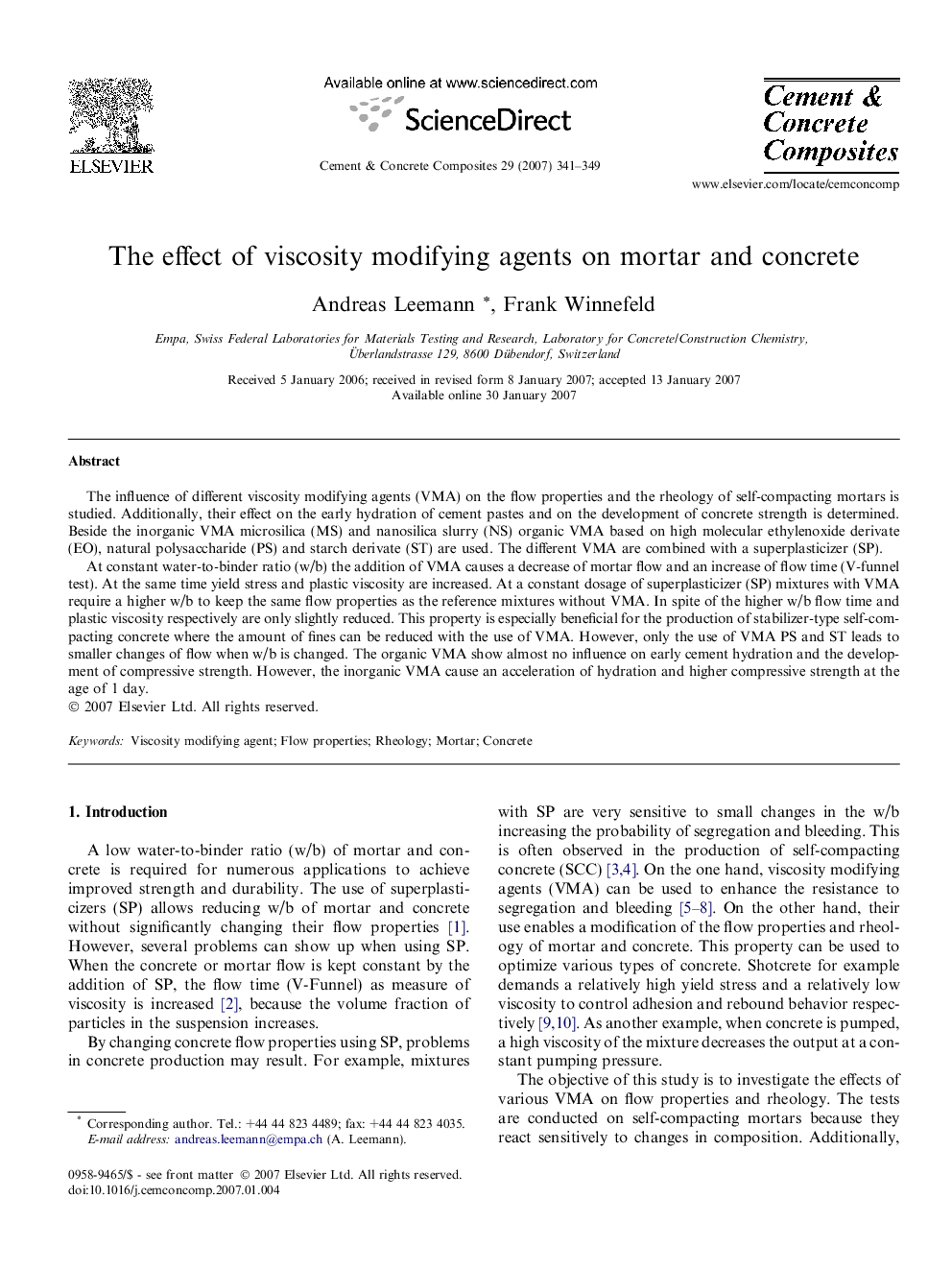| Article ID | Journal | Published Year | Pages | File Type |
|---|---|---|---|---|
| 1455816 | Cement and Concrete Composites | 2007 | 9 Pages |
The influence of different viscosity modifying agents (VMA) on the flow properties and the rheology of self-compacting mortars is studied. Additionally, their effect on the early hydration of cement pastes and on the development of concrete strength is determined. Beside the inorganic VMA microsilica (MS) and nanosilica slurry (NS) organic VMA based on high molecular ethylenoxide derivate (EO), natural polysaccharide (PS) and starch derivate (ST) are used. The different VMA are combined with a superplasticizer (SP).At constant water-to-binder ratio (w/b) the addition of VMA causes a decrease of mortar flow and an increase of flow time (V-funnel test). At the same time yield stress and plastic viscosity are increased. At a constant dosage of superplasticizer (SP) mixtures with VMA require a higher w/b to keep the same flow properties as the reference mixtures without VMA. In spite of the higher w/b flow time and plastic viscosity respectively are only slightly reduced. This property is especially beneficial for the production of stabilizer-type self-compacting concrete where the amount of fines can be reduced with the use of VMA. However, only the use of VMA PS and ST leads to smaller changes of flow when w/b is changed. The organic VMA show almost no influence on early cement hydration and the development of compressive strength. However, the inorganic VMA cause an acceleration of hydration and higher compressive strength at the age of 1 day.
